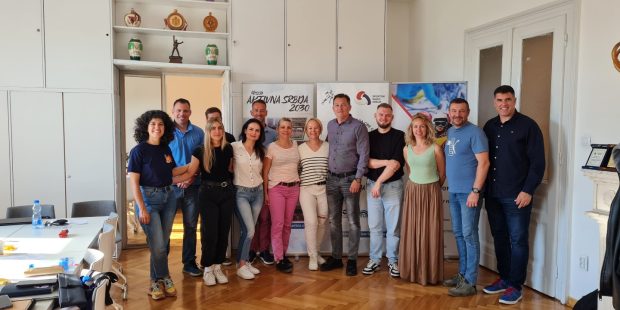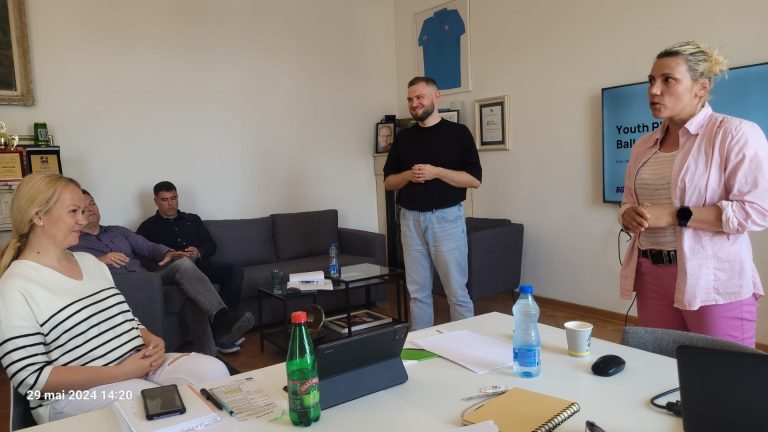Youth Placemaking Balkans - Kick off meeting

An introductory meeting of the Youth Placemaking Balkans project was held in Belgrade from May 29 to June 1, 2024. At the beginning of April, the Erasmus+ Solidarity Corps and Youth project named YOUTH PLACEMAKING BALKANS was launched, with the Bulgarian organization BG BYDI ACTIVEN as the leader.
The project consortium consists of six partners from different sectors and countries: BG BYDI ACTIVEN (Bulgaria), Association Sport for All Serbia (Serbia), Sport Social Solutions (North Macedonia), STIPO Greece (Greece), Asociatia Judeteana Sportul pentru toti Suceava (Romania), and Istrian Sports Academy (Croatia).
The meeting enabled closer acquaintance among the partner organizations, exchange of experiences in working with youth, definition of the term placemaking as a general project concept, and detailed establishment of the work plan and timeframes.

Placemaking is a new term that describes an approach to urban planning and design focusing on the people who use the space, rather than just the physical structures or buildings. Although there is no official definition, it involves creating places that are safe, where people gather and discover everything they have in common, which is the foundation of inclusion and democracy. “Placemaking provides spaces where people exchange ideas and take action together, which is essential for combating pandemics, emergency climate situations, and economic inequality.”
The idea of the project is to effectively integrate the needs of young people into placemaking for recreation and to use it to engage young people in the processes of creating places to foster active citizenship, build new skills in young people and youth workers through education and training, and to build a network of young people that changes existing spaces and involves youth in social entrepreneurship and cultural exchange to support regional identity.
The project’s goal is to ensure increased participation of young people in placemaking activities and their learning of relevant skills and competencies by identifying and integrating the needs of young people in public spaces into a methodological framework for placemaking and building the capacities of young people.
During the three-day meeting, the partners had the opportunity to discuss the main goals of the project, better understand the concept of placemaking through participation in various workshops, and lay the foundations for national strategies to be implemented by the end of the project.
For the next two years, the partners will work with focus groups of young people aged 16-29, as well as a series of workshops that will result in conceptual solutions for placemaking of smaller and larger scales in some of the municipalities/cities of the partner countries.


